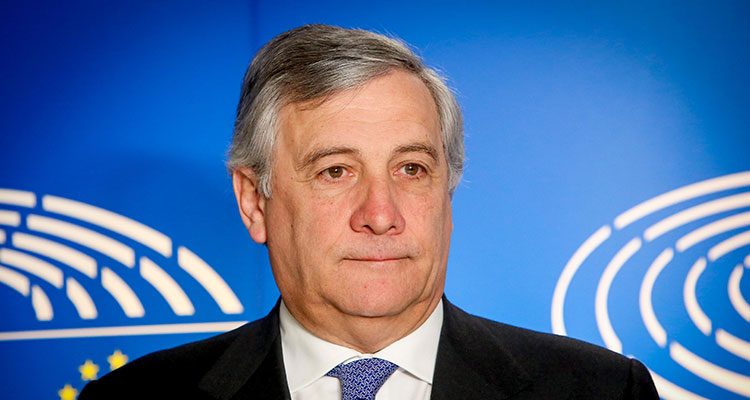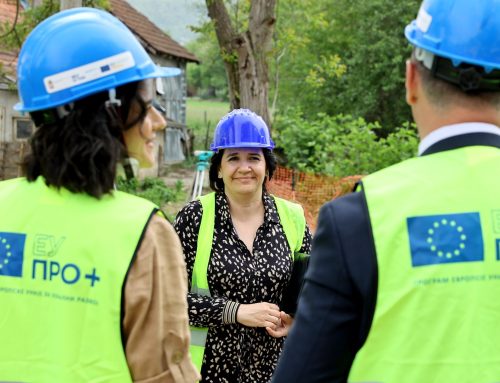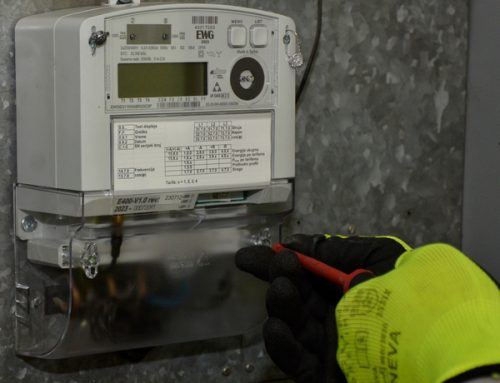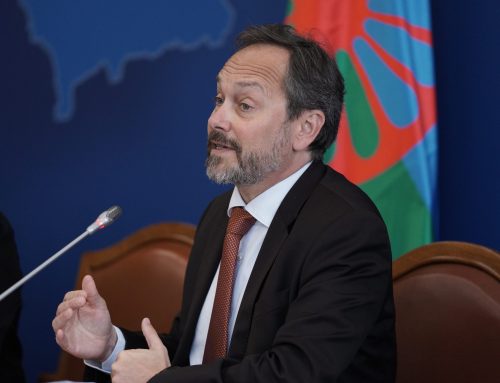European Parliament President, Antonio Tajani will pay an official visit to Serbia on 31st January.
Highlights include meetings with President of the National Assembly, Maja Gojkovic; Prime Minister, Ana Brnabic; President of the Republic of Serbia, Aleksandar Vucic President of Serbia and First Deputy Prime Minister and Minister of Foreign Affairs.
In the morning, the President of the Parliament will deliver a speech to the EU Convent, a debate forum on Serbian accession, between representatives of the governmental bodies, political parties, NGOs, experts, syndicates, private sector and representatives of professional organizations.
In the afternoon, President Tajani and President Vucic will open an event on Investment, Growth and Job Creation aimed at attracting business opportunities in the country and facilitating cooperation with EU entrepreneurs.
During the visit, President of the European Parliament will attend the signature ceremony for the financial agreement between Serbia and the European Investment Bank, securing a grant and a loan for the reconstruction and modernisation of Nis-Dimitrovgrad railroad, as well as a grant agreement agreed upon between the CoE Development Bank and the Republic of Serbia aimed at the Regional Housing Programme. The agreement will be signed during the conference “EU – SERBIA 2018: Investment, Growth and Job Creation.“
The agreements will be signed by Serbian Minister of European Integration Jadranka Joksimovic and Vice-President of the European Investment Bank Dario Scannapieco, as well as by Serbian Minister of Finance Dusan Vujovic and Vice-Governor of the CoE Development Bank Carlo Monticelli. The signature ceremony will be attended by Serbian President Aleksandar Vucic and European Parliament President Antonio Tajani.
Background:
As one of the two frontrunners with a 2025 perspective for EU membership, Serbia is expected to deliver substantive progress on the rule of law and the normalisation of relations with Kosovo, as well as implement EU integration related action plans, legislation and constitutional reform. The European Commission will present a strategy for a successful EU accession of Serbia and Montenegro as frontrunner candidates in the Western Balkans on 6 February 2018.
Since the opening of EU accession negotiations in January 2014: 12 out of 35 chapters have been opened, two provisionally closed. Serbia aims at closing all chapters by 2022.
Serbia has obtained very good results with macroeconomic stabilisation in 2017. Economic activity is forecast to continue to be driven by further export expansion and expected rising private investment, including Foreign Direct Investment (€2bn in 2017 or 6% of GDP).
EU support improved public finance management and public administration reform through sector budget support worth €80m. The European Commission just signed with the EIB a contract (worth €20m) to establish a guarantee facility for SMEs which should significantly reduce the interest rate in participating commercial banks.
Serbia successfully participates in several EU initiatives such as Erasmus+, COSME, Horizon2020, Creative Europe and is a successful recipient of EU investment grants under the “connectivity agenda”, whose main aim is building and connecting transport and energy infrastructure as a driver for growth and jobs in the region.
- Click here for detailed information on EU financial assistance to Serbia.
- Click here for the latest European Parliament resolution on Serbia.
- Click here for the latest country progress by European Commission on accession negotiations.
* This designation is without prejudice to positions on status, and is in line with UNSCR 1244/1999 and the ICJ Opinion on the Kosovo declaration of independence.




